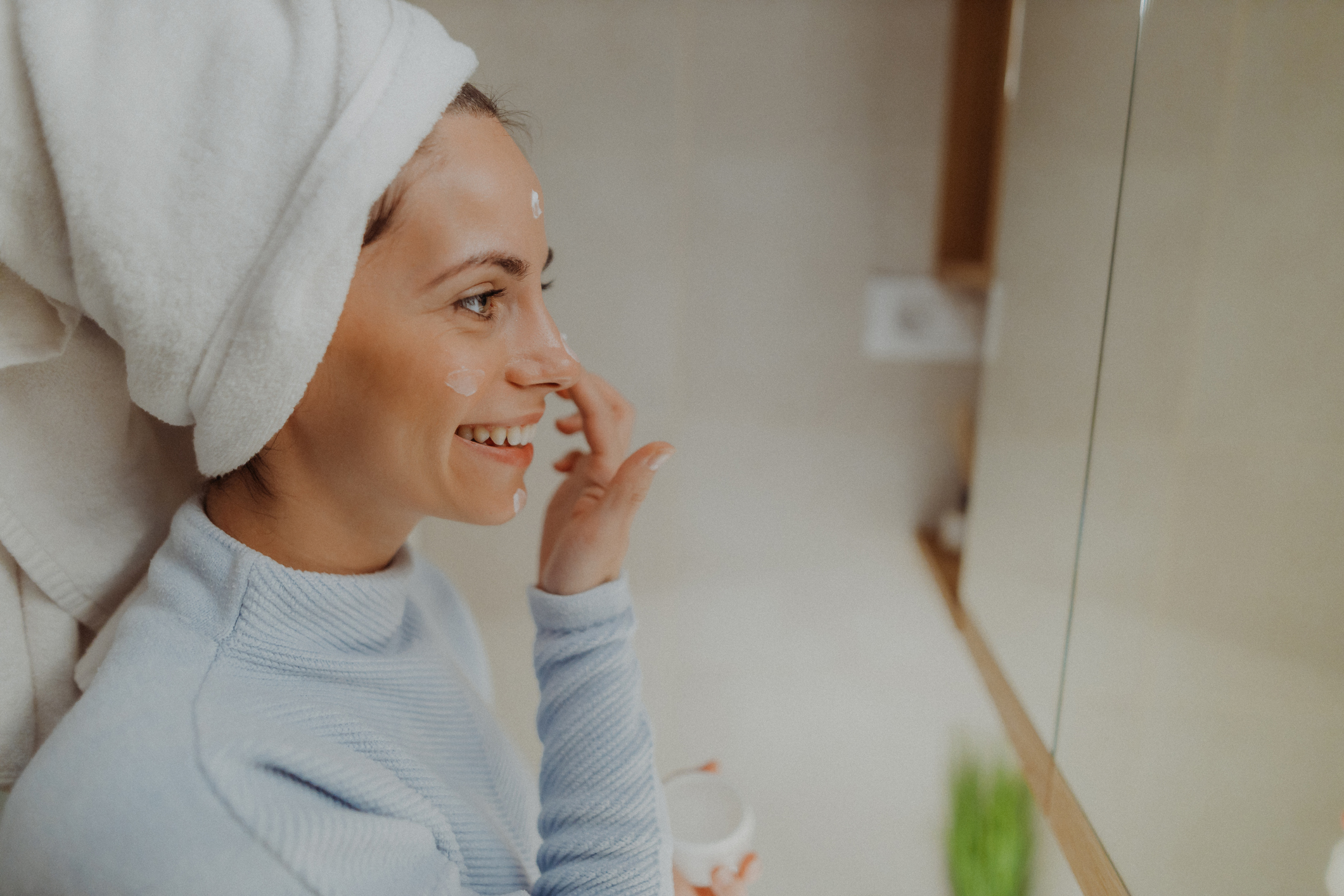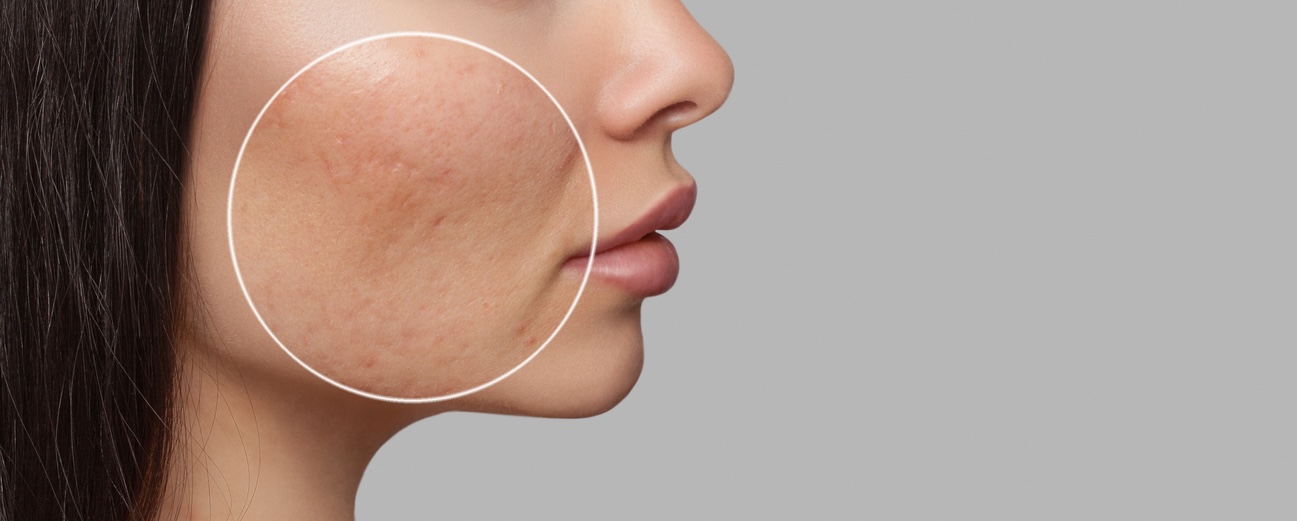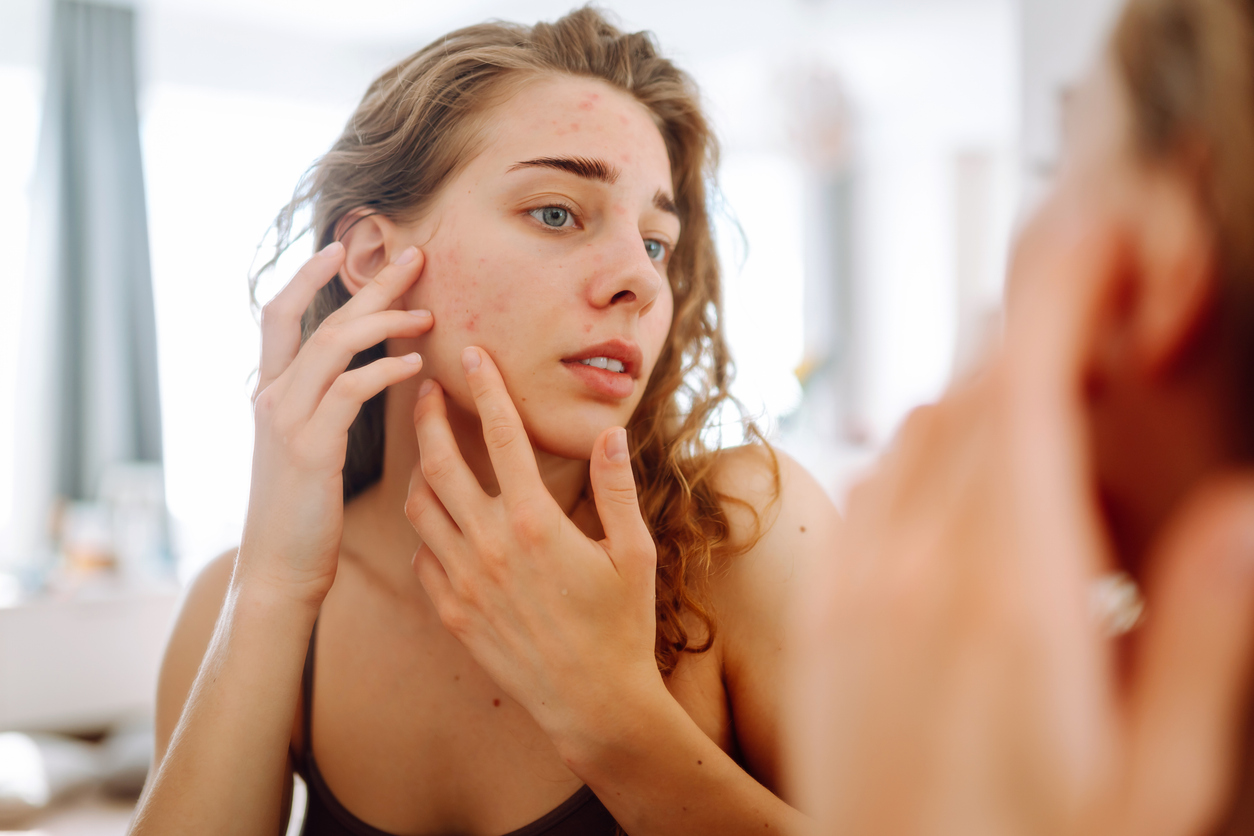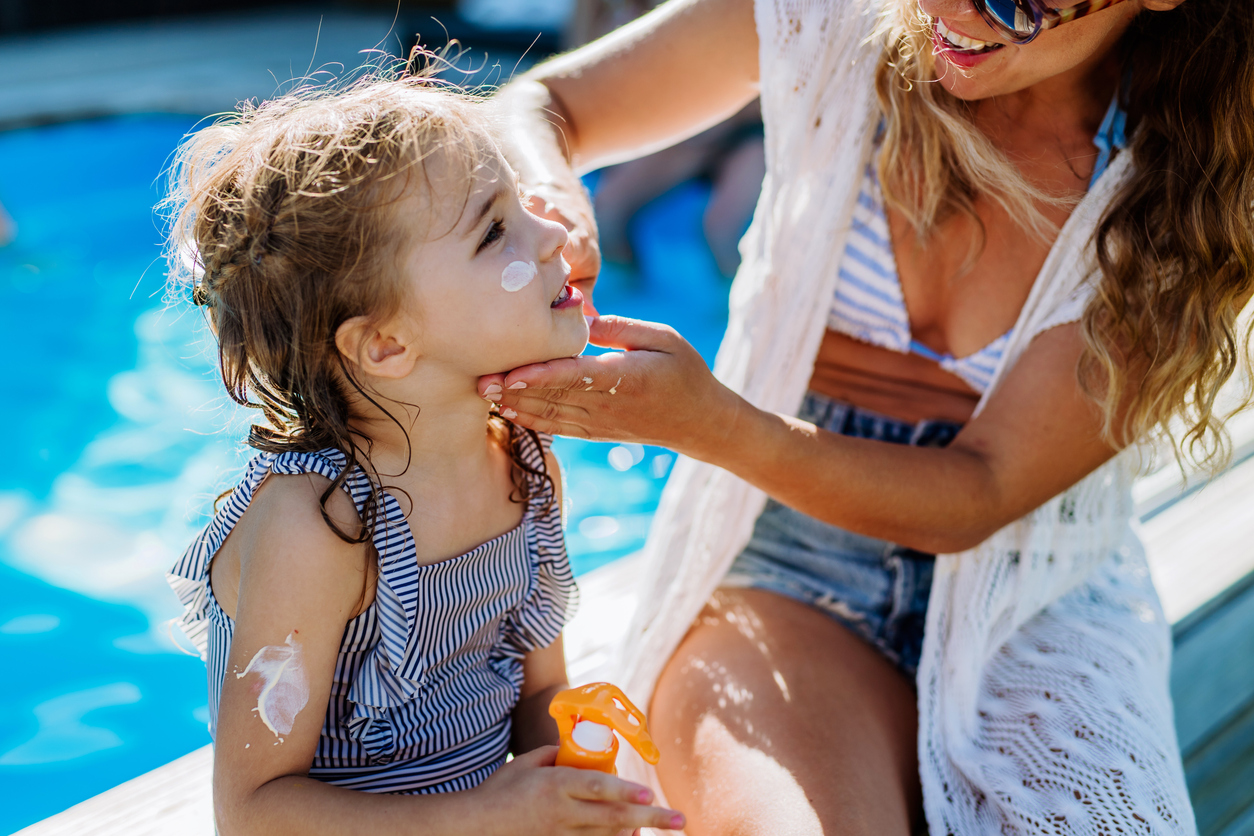If you are looking for a skin care product that checks the boxes of anti-aging, anti-acne, and anti-skin cancer, then a topical retinoid will shine as the star of your skin care regimen. Keep reading as we uncover the important details of topical retinoids, including the benefits they provide, tips for application, and an insider’s guide to retinoid selection.
What is a retinoid? Are there different types?
Retinoids are Vitamin A derivatives that bind with retinoid receptors on our skin cells to promote skin cell turnover, stimulate collagen and elastin production, and repair DNA damage to reduce skin cancer formation. There are multiple types of topical retinoids, ranging from retinol and retinaldehyde in over-the-counter formulations, and prescription strength retinoids like tretinoin and tazarotene. It’s important to choose the right retinoid for your skin type and concerns as some can be very irritating.
Retinoids for Anti-Aging
Topical retinoids are the gold standard in anti-aging skin care for a good reason. They stimulate our fibroblasts, which are cells in the skin that produce collagen and elastin. Starting in our 20’s, we lose about 1% of collagen in our skin per year, or about 10% per decade! Collagen gives our skin structure, so collagen loss results in wrinkles and sagging. Elastin fibers also degrade over time leading to sagging and crepey texture. Retinoids crank up the collagen and elastin production to restore what would otherwise be lost.
Retinoids also promote skin cell turnover, which accelerates the clearance of duller dry skin cells at the surface. The healthy cells stay closer to the top, and as we know, healthy cells give the skin a youthful appearance. The turnover effect also removes the discolored, hyperpigmented skin cells and help prevent unwanted dark spots. We often call this effect the “retinoid glow,” as skin looks smooth and reflects light beautifully.
Retinoids for Acne
For most acne patients, topical retinoids are a mainstay of acne treatment. By promoting skin cell turnover, they prevent pore blockage. They also lower inflammation in the skin, making retinoids an important part of treating comedonal (white heads and black heads) and inflammatory (red and angry bumps) acne. Is your acne hormonal? You need a retinoid! Biopsies from patients with hormonal acne revealed excessive skin cell build up, so in addition to addressing hormones when appropriate, promoting the skin cell turnover with a retinoid will lead to great treatment success.
Retinoids for Skin Cancer Prevention
Topical retinoids can be helpful in preventing the development of non-melanoma skin cancers, primarily Basal Cell Carcinomas and Squamous Cell Carcinomas. They are thought to do so in several ways, including promoting cancerous cell death, suppressing cancerous cell growth, and reducing UV-induced DNA damage that leads to skin cancer development.
Sun Sensitivity and Other Side Effects of Retinoids
Many people worry they can’t use a retinoid if they spend time in the sun. Actually, the opposite is true! Retinoids will help protect sun lovers from skin cancer and photoaging. However, retinoids make the skin sunburn more easily, so it’s critical to commit to daily SPF 30 or higher, rain or shine, when using topical retinoids.
Dryness is also a common side effect as retinoids reduce oil production. It’s important to start retinoids every other night for one month to help skin adapt, apply a pea size amount to cover the entire face, and follow with a hydrating moisturizer at bedtime.
It’s important to keep retinoids away from the eye. My rule is to “obey the bone.” Feel around your eye for the orbital rim and stay 1 finger breadth outside that area with the retinoid. Also, avoid applying retinoids to the corners of the mouth and the creases of the nose as they can cause excessive irritation.
Now that you’re Retinoid Ready, which one should you choose?
If you’re oily and acne prone, you may be able to start with prescription strength, like tretinoin or tazarotene. Otherwise, drier and more sensitive skin types generally do best with a preparation containing retinol. There are many options available, and your Dermatologist can help you choose the best fit for your skin goals.
Safe Starter Retinols: SkinBetter AlphaRet Overnight, SkinBetter AlphaRet Clearing Serum, Revision Retinol 0.5%, and Avène Retrinal are usually very safe, tolerable starter retinol products that we carry in our office. Your Dermatologist can discuss in depth which would be the best choice.
Who Should not use Retinoids?
Pregnant women or women who may be pregnant should not use Retinol. Ask your Dermatologist if Retinoids are safe for you.





